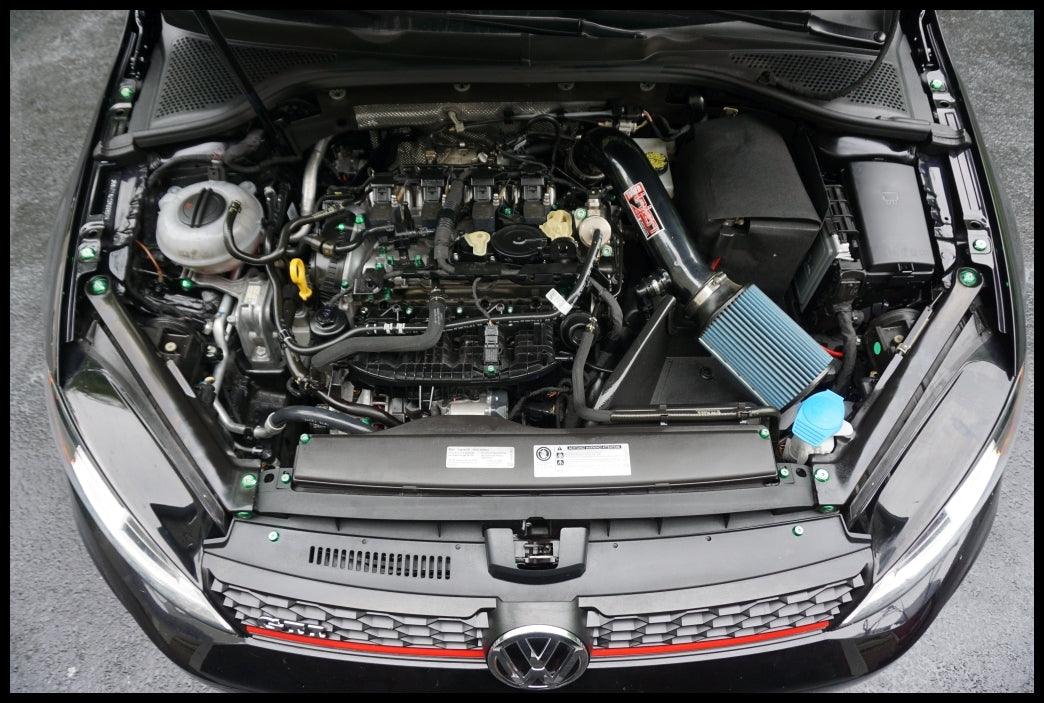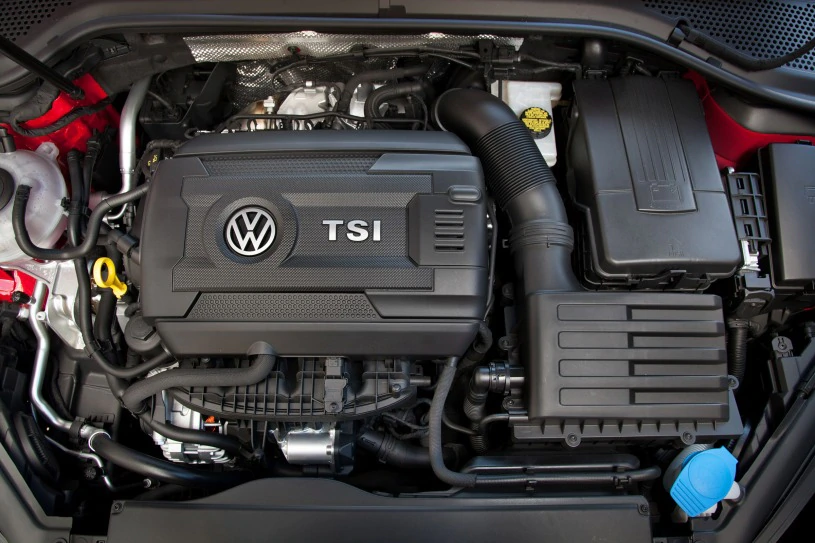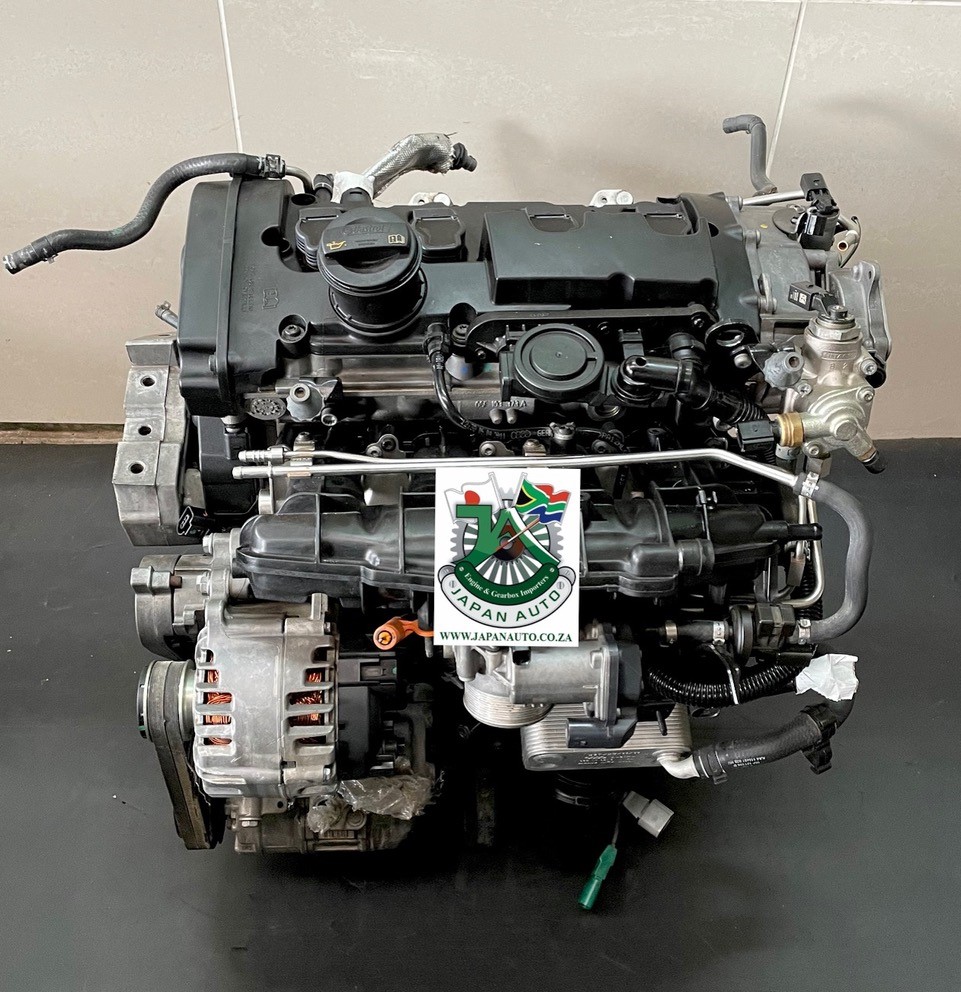Your Overview to the Golf 7 GTI Engine: Reliability and Upgrades
The Golf 7 GTI, geared up with its 2.0-liter turbocharged inline-four engine, stands for an equilibrium of efficiency and dependability that appeals to lovers and daily vehicle drivers alike. Understanding the elements that add to its reliability, together with potential problems and their options, is critical for making best use of the driving experience. Discovering numerous efficiency upgrades can considerably enhance both power and effectiveness. However, the inquiry continues to be: what details upgrades can transform your GTI into an absolutely exceptional vehicle while ensuring its long life?
Review of the Golf 7 GTI Engine
The heart of the Golf 7 GTI is its 2.0-liter TSI engine, a turbocharged four-cylinder that delivers a remarkable mix of power and efficiency. This engine creates a robust 220 horse power and 258 lb-ft of torque, permitting the automobile to increase from 0 to 60 mph in just 5.6 seconds, showcasing its sporty character. The turbocharged style not just boosts performance but also enhances fuel efficiency, making it a practical choice for daily driving.
Integrating sophisticated innovation, the engine features direct gas shot, which enhances burning effectiveness and decreases exhausts. In addition, the Golf 7 GTI is equipped with either a six-speed manual or a six-speed DSG dual-clutch transmission, supplying vehicle drivers with the flexibility to pick their liked driving style. The car's front-wheel-drive layout, incorporated with a well-tuned suspension, ensures active handling and a responsive driving experience.
Engine Dependability Factors
Reliability is an essential element of any kind of performance-oriented vehicle, and the Golf 7 GTI's engine is no exception. A number of variables add to the total reliability of this very related to powerplant, which is important for both daily driving and perky efficiency.
First Of All, the Golf 7 GTI is geared up with a durable 2.0-liter turbocharged inline-four engine, recognized for its efficient design and solid engineering. This engine features a built steel crankshaft and light weight aluminum engine block, which supply exceptional toughness and resilience while reducing weight.
Second of all, routine maintenance plays a crucial duty in improving engine dependability. Following the maker's preferred service intervals, utilizing top quality lubricants, and replacing vital components such as stimulate filters and plugs can dramatically extend engine life.
Additionally, the high quality of gas used can likewise influence integrity. Premium gas is suggested to guarantee optimum efficiency and decrease the danger of knocking or ignition.
Lastly, the car's digital administration system continually checks engine specifications, permitting real-time changes to optimize performance and efficiency while securing against prospective issues. Collectively, these elements underscore the Golf 7 GTI engine's reputation for integrity among lovers and daily vehicle drivers alike.
Usual Concerns and Solutions
The Golf 7 GTI, while commemorated for its efficiency, is not without its difficulties. Amongst the most often reported problems are engine oil usage and turbocharger failings, which can dramatically affect car reliability. Recognizing these common troubles and their options is crucial for preserving optimum engine efficiency.

Engine Oil Usage
While lots of enthusiasts value the performance of the Golf 7 GTI, engine oil usage can become a remarkable problem. Owners might discover that their automobiles call for more constant oil top-ups than anticipated, commonly attributed to various factors fundamental in the engine's design and operation.
One typical concern is the engine's straight fuel injection system, which can cause enhanced oil consumption due to the burning procedure. Additionally, using high-performance driving practices can aggravate oil burn-off, especially under hostile throttle problems. Drivers may also experience oil leaks from gaskets and seals, which can contribute to minimized oil levels.
To address oil usage, regular upkeep is vital. Routine oil adjustments using premium artificial oil can help maintain optimum engine performance and durability. Keeping an eye on oil levels and conducting timely checks can prevent prospective problems before they rise. If extreme consumption continues, it may be recommended to seek advice from an expert technician to assess the engine for prospective interior problems, such as worn piston rings or valve seals. Embracing these practices can considerably reduce worries relating to oil usage in the Golf 7 GTI, making sure a much more pleasurable and reliable driving experience.
Turbocharger Failures
Turbocharger failings can significantly impact the efficiency of the Golf 7 GTI, leading to lessened power and performance. Common issues associated with the turbocharger include oil leaks, wastegate failure, and too much shaft play. Oil leaks frequently stem from used seals or harmed gaskets, which can result in oil contamination and succeeding engine damage. Regularly inspecting these components can help identify and minimize such problems early.
An additional widespread issue is wastegate failing, which can lead to overboost or underboost problems. This not only influences the vehicle's performance but can also bring about serious engine damage if left untreated. Updating to an extra robust wastegate can boost integrity and performance.
Too much shaft play suggests wear in the turbocharger's bearings, which can lead to a total turbo failure. Monitoring increase pressure and paying attention for unusual noises can assist detect this trouble early.
To stop turbocharger failings, regular maintenance, including oil adjustments and air filter substitutes, is vital. Furthermore, buying high-quality aftermarket components might provide enhanced reliability and performance, ultimately boosting the driving experience of the Golf 7 GTI.
Performance Upgrades to Consider
What efficiency upgrades can truly boost the driving experience of a Golf 7 GTI? To release the complete capacity of this iconic hot hatch, a number of targeted alterations can enhance power, handling, and overall driving enjoyment.
Among the most effective upgrades is a high-performance turbocharger. Replacing the stock unit with an aftermarket option can dramatically raise horsepower and torque, delivering a more thrilling acceleration experience. Enhancing this upgrade with a performance intercooler aids keep optimal temperatures, ensuring regular power distribution.
Following, think about updating the exhaust system. A less limiting exhaust not only enhances engine efficiency however also produces a more aggressive audio that amplifies the cars and truck's stylish personality. Pairing this with a remapped ECU will maximize fuel shipment and ignition timing, more increasing efficiency.
Suspension upgrades, such as adjustable coilovers, can enhance handling by reducing the car's center of gravity and minimizing body roll. In addition, a set of high-performance tires will boost grip, enabling sharper cornering and improved general stability.
With each other, these upgrades can transform the Golf 7 GTI right into a much more thrilling and vibrant driving equipment, making every trip an extraordinary experience. golf 7 gti engine.
Recommended Upkeep Practices
Keeping the Golf 7 GTI engine calls for interest to essential techniques that make certain optimal efficiency and longevity. Regular oil adjustments are vital for engine wellness, while timely timing belt replacement is essential to avoid prospective failings. Applying these upkeep methods will aid maintain your lorry running efficiently and successfully.
Regular Oil Adjustments
Routine oil changes are vital for the ideal performance look these up and long life of the Golf 7 GTI's engine. Preserving a consistent oil adjustment schedule makes certain that the engine runs smoothly and effectively. The recommended interval for oil changes is typically every 5,000 to 10,000 kilometers, relying on driving problems and the kind of oil utilized.
Using high-grade artificial oil is important as it provides premium lubrication and thermal security compared to standard oils. This is particularly important for the Golf 7 GTI, which includes a turbocharged engine that produces greater operating temperatures. Normal oil changes aid to remove contaminants and sludge accumulation, which can jeopardize engine efficiency and bring about early wear.
Furthermore, fresh oil improves fuel effectiveness and decreases unsafe exhausts, contributing to a cleaner environment. During the oil change procedure, it is also advisable to replace the oil filter to guarantee optimal filtering and stop any type of debris from going into the engine. Following these practices not just aids preserve the engine's integrity yet likewise maintains the worth of the vehicle, making routine oil transforms an important facet of accountable GTI possession.
Timing Belt Replacement
The timing belt is an essential part of the Golf 7 GTI's engine, responsible for synchronizing the rotation of the crankshaft and camshaft. This synchronization is essential for ideal engine performance and efficiency. If the timing belt fails, it can lead to tragic engine damages, making prompt substitute critical.

When intending a timing belt substitute, it is suggested to also replace the water pump and tensioner. These components function in conjunction with the timing belt and often experience similar wear, ensuring web ideal efficiency and long life. find more information Using OEM parts is recommended for their reliability and compatibility with the Golf 7 GTI's engine.
Specialist setup is highly motivated, as incorrect installment can lead to severe engine malfunctions. Routine upkeep of the timing belt not just shields the stability of the engine yet also improves the overall driving experience of the Golf 7 GTI. golf 7 gti engine. Prioritizing this task helps preserve car reliability and performance over time
Aftermarket Parts and Alterations
Many fanatics turn to aftermarket parts and adjustments to enhance the performance and visual appeals of the Golf 7 GTI. These upgrades can dramatically boost the car's responsiveness, taking care of, and general driving experience. Popular alterations consist of high-performance air consumptions, exhaust systems, and intercoolers, which can raise horse power and torque by enhancing air consumption and exhaust flow.
Suspension upgrades are additionally widespread, with alternatives varying from lowering springs to totally flexible coilover sets that enhance ride top quality and cornering capacity. Upgraded brakes, consisting of performance pads and blades, can supply better quiting power, making certain safety and security and control during perky driving.
Aesthetic modifications, such as aftermarket wheels, body sets, and custom-made lighting, permit owners to individualize their cars while keeping a sporty look. Engine adjusting, whether via ECU remapping or standalone engine administration systems, can open additional efficiency capacity, making the GTI much more electrifying to drive.
While aftermarket modifications can produce considerable advantages, it's vital to choose reliable brands and take into consideration the potential effect on service warranty and integrity. Proper installment and tuning are critical to make certain the durability of the vehicle while taking pleasure in the improvements.
Enhancing Gas Efficiency
Improving fuel effectiveness in the Golf 7 GTI can result in substantial price savings and a decreased environmental influence. Achieving far better fuel economic climate requires a mix of driving habits, maintenance methods, and critical alterations.
One efficient approach is embracing a smooth driving design, preventing fast velocity and hefty stopping, which can dramatically minimize gas consumption. Maintaining optimal tire stress is additionally important; under-inflated tires can boost moving resistance, resulting in decreased performance. Regular servicing, including engine adjusting and air filter replacements, guarantees that the engine runs at peak efficiency, additionally enhancing gas economic situation.
For those looking for upgrades, take into consideration a performance tune that concentrates on effectiveness instead than sheer power. Eco-mode setups, if readily available, can readjust throttle feedback and shift indicate maximize gas financial savings. In addition, light-weight aftermarket wheels can reduce weight and boost efficiency without jeopardizing efficiency.
Last but not least, employing wind resistant improvements, such as a front splitter or back looter, can lower drag at greater rates, adding to better gas economic situation. By implementing these adjustments and methods, Golf 7 GTI proprietors can enjoy boosted gas effectiveness while keeping the vehicle's spirited driving features.
Conclusion
In conclusion, the Golf 7 GTI engine exhibits a blend of efficiency and integrity, driven by a well-engineered 2.0-liter turbocharged inline-four. Various performance upgrades and aftermarket adjustments can improve driving experience while maintaining dependability.
The Golf 7 GTI, equipped with its 2.0-liter turbocharged inline-four engine, stands for an equilibrium of performance and reliability that charms to lovers and day-to-day motorists alike. Routine oil modifications utilizing top notch artificial oil can assist maintain optimal engine efficiency and long life.Normal oil modifications are important for the ideal efficiency and durability of the Golf 7 GTI's engine. Normal servicing, including engine adjusting and air filter substitutes, ensures that the engine runs at peak efficiency, better improving gas economy.
